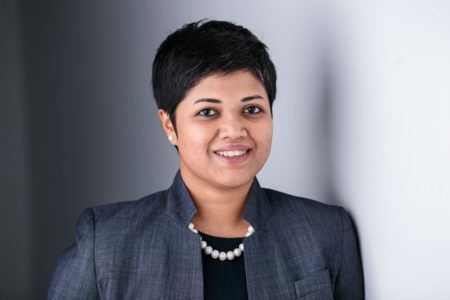Sarkar Publishes Journal Article on U.S. Nonproliferation Policy
Jayita Sarkar, Assistant Professor of International Relations at the Frederick S. Pardee School of Global Studies at Boston University, recently published a journal article in The Nonproliferation Review entitled, “US Technological Collaboration for Nonproliferation: Key Evidence From the Cold War.” The article explores how the United States offered technical assistance in reactor technologies and space programs to stall nuclear proliferation through technological diversion. The cases examined in the article are U.S. assistance to India, West Germany, Israel and Egypt.
From the text of the abstract:
Although the existing international-relations scholarship argues that technological assistance in the nuclear domain increases the probability of nuclear proliferation, the historical account indicates otherwise. Congressional legislation for nonproliferation, economic sanctions, and poor state capacity—specifically, inept managerial capabilities of the recipient state—explain merely part of the puzzle, but overlook the role of positive inducements offered to impede nuclear proliferation. Historical evidence shows that the United States often provided technological assistance with the deliberate intent to inhibit proliferation. In other words, Washington employed its technological leverage to attain nonproliferation goals. American technological preponderance since the end of World War II made such an approach feasible. This study examines key Cold War cases—Israel/Egypt, India, and West Germany—where the United States offered technological assistance with the deliberate intent to stall nuclear proliferation, thereby underscoring the role of assistance for inhibitive ends.
Jayita Sarkar, an historian by training, is Assistant Professor of International Relations at Boston University’s Frederick S. Pardee School of Global Studies. Her expertise is in the history of U.S. foreign policy, nuclear proliferation, the global Cold War, South Asia and Western Europe. Her research has appeared or is forthcoming in the Journal of Cold War Studies, Journal of Strategic Studies, Cold War History, International History Review, and elsewhere. Dr. Sarkar has held fellowships at MIT, Harvard, Columbia and Yale universities, and obtained a doctorate in International History from the Graduate Institute Geneva in Switzerland.
